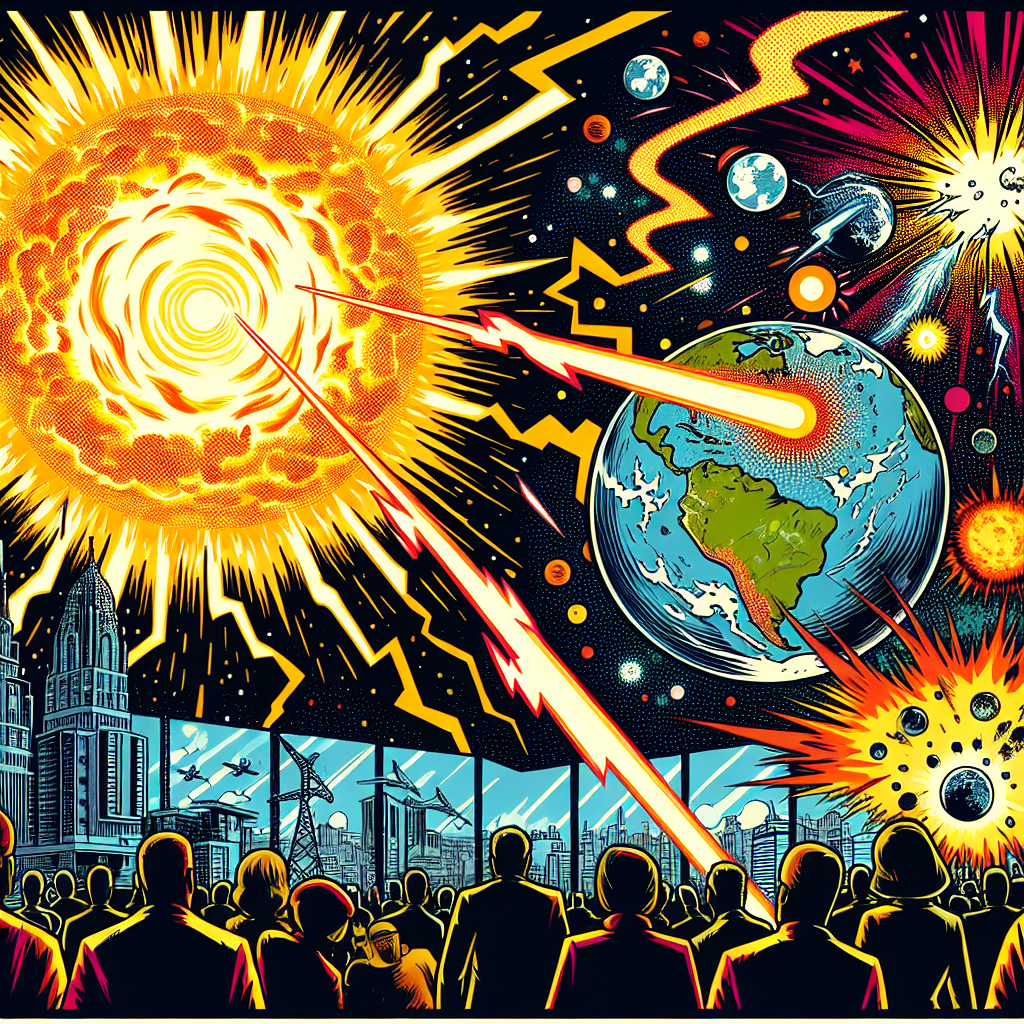A solar flare hitting Earth directly is an event that would unleash an enormous amount of energy upon our planet. To understand the impact, let's break down what a solar flare is and how it would affect our daily lives.
A solar flare is a massive explosion on the surface of the Sun, releasing a huge amount of radiation and high-energy particles into space. Imagine a colossal firework exploding on the Sun, sending electromagnetic radiation and solar wind hurtling towards the Earth at incredible speeds. If a solar flare were to hit Earth directly, the effects would be catastrophic.
The electromagnetic radiation from the flare would interact with our planet's magnetic field, causing a geomagnetically induced current (GIC) to flow through our power grids. Think of it like a massive electrical surge that could knock out transformers, overload circuits, and cripple our electrical infrastructure. The entire power grid could collapse, leaving millions without electricity.
The radiation from the flare would also bombard our atmosphere, causing it to expand and increase the air resistance on satellites in low Earth orbit. This would slow them down, causing them to fall out of the sky like shooting stars. Imagine watching as GPS satellites, weather satellites, and communication satellites begin to plummet towards the Earth, taking crucial services with them.
The high-energy particles from the flare would also collide with our atmosphere, producing spectacular aurora displays at lower latitudes. While beautiful to behold, these particles would also cause radiation poisoning to people and animals exposed to them. It's like being in the proximity of a nuclear reactor meltdown, without the meltdown.
The impact on our technology would be devastating. Solar flares can also cause radio blackouts, disrupting communication systems that rely on radio signals. Imagine no phone signal, no internet, and no television broadcasts. It would be like reverting back to the Stone Age, but without the charm.
Air travel would grind to a halt, as the radiation would interfere with aircraft communication and navigation systems. Pilots would be unable to navigate safely, and air traffic control would be unable to communicate with planes. The skies would be empty, and airports would be idle.
The effects on our climate would be significant. The increased radiation would heat up the atmosphere, causing it to expand and increase the air pressure. This would lead to extreme weather patterns, with massive storms and turbulent jet streams. The weather would be as unpredictable as a toddler's tantrum.
In the aftermath of the flare, the lack of electricity would paralyze our modern society. Water treatment plants would shut down, leaving millions without access to clean drinking water. Hospitals would struggle to operate, and emergency services would be severely hampered. It would be like living in a war zone, but without the bombs.
The economic impact would be staggering. The global financial system would collapse, as stock markets and trading systems rely heavily on technology and communication systems. The world would be plunged into a global recession, with trade and commerce severely disrupted.
In the days and weeks that follow, the world would be a very different place. Without electricity, we would have to rely on more traditional means of communication, like printed newspapers and face-to-face conversation. It would be a strange, eerie silence, like a global pause button had been pressed.
The recovery process would be long and arduous. It would take months, if not years, for our societies to rebuild and recover from the devastation. It's a sobering reminder of our place in the universe and the importance of being prepared for the unexpected.

Popular Space Questions
Find answers to the trending space questions being asked by our community on social media.
- How many galaxies are there in the universe?
- How far is Pluto from Earth?
- How many planets are in the Milky Way?
- How many planets are in our solar system?
- What would happen if a rogue planet entered our solar system?
- How big is the Earth?
- What are the planets in order?
- What if we found a way to manipulate gravity?
- What would happen if a pulsar's beam hit Earth?
- What would happen if a quasar aimed its jet at Earth?